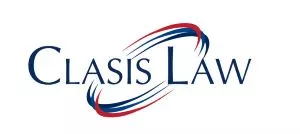Uniper Global Commodities, Respondent before the High Court was represented by Amit Agrawal, counsel alongwith Shwetabh Sinha and his team: Sidhant Pandita and Vatsala Pandey from Clasis Law.
In the matter of Steel Authority of India Vs. Uniper Global Commodities, the Hon'ble Delhi High Court dismissed the Petition under Section 27 of the A&C Act on the ground that the order passed by the Arbitral Tribunal, granting permission to the Petitioner to apply to the Court for seeking its assistance in taking evidence, is a non-speaking order, based on a misconception of law that the Arbitral Tribunal is not required to examine, even prima-facie, the relevancy or materiality of the evidence sought to be produced, before allowing the application under Section 27 of A&C Act.
The Respondent (Claimant) and the Petitioner (Respondent) had entered into a Charter Party Agreement for carriage of Petitioner's cargo from United States ports to the ports of Haldia and Vizag in India. Certain disputes arose between the parties in relation to demurrage and freight charges, whereafter the Respondent invoked arbitration under the rules of Indian Council of Arbitration. During the course of the arbitration proceedings, the Petitioner filed an Application before the Arbitral Tribunal seeking its approval to approach the High Court for assistance in taking the evidence of an independent third-party witness.
The Arbitral Tribunal, without considering the relevancy and materiality of the evidence sought to be produced, allowed the Petitioner's Application on the ground that the parties in an arbitration proceeding should be given full opportunity to present their case and that at this stage, the Arbitral Tribunal is not required to go into the relevancy or materiality of the evidence sought to be produced.
The High Court dismissed the Section 27 Petition and directed the Arbitral Tribunal to consider, even on a prima facie basis, the relevancy of the evidence sought to be produced by Petitioner before allowing it to approach the High Court.
The judgment passed by the High Court stands out and will act as a precedent in similar matters, considering that usually an order passed by the Arbitral Tribunal, granting permission to the applicant to apply to the Court for seeking assistance in taking evidence, is not liable to be disturbed since this Court while exercising powers under Section 27 of the A&C Act is not hearing an appeal over the decision of the Arbitral Tribunal.
The content of this article is intended to provide a general guide to the subject matter. Specialist advice should be sought about your specific circumstances.



